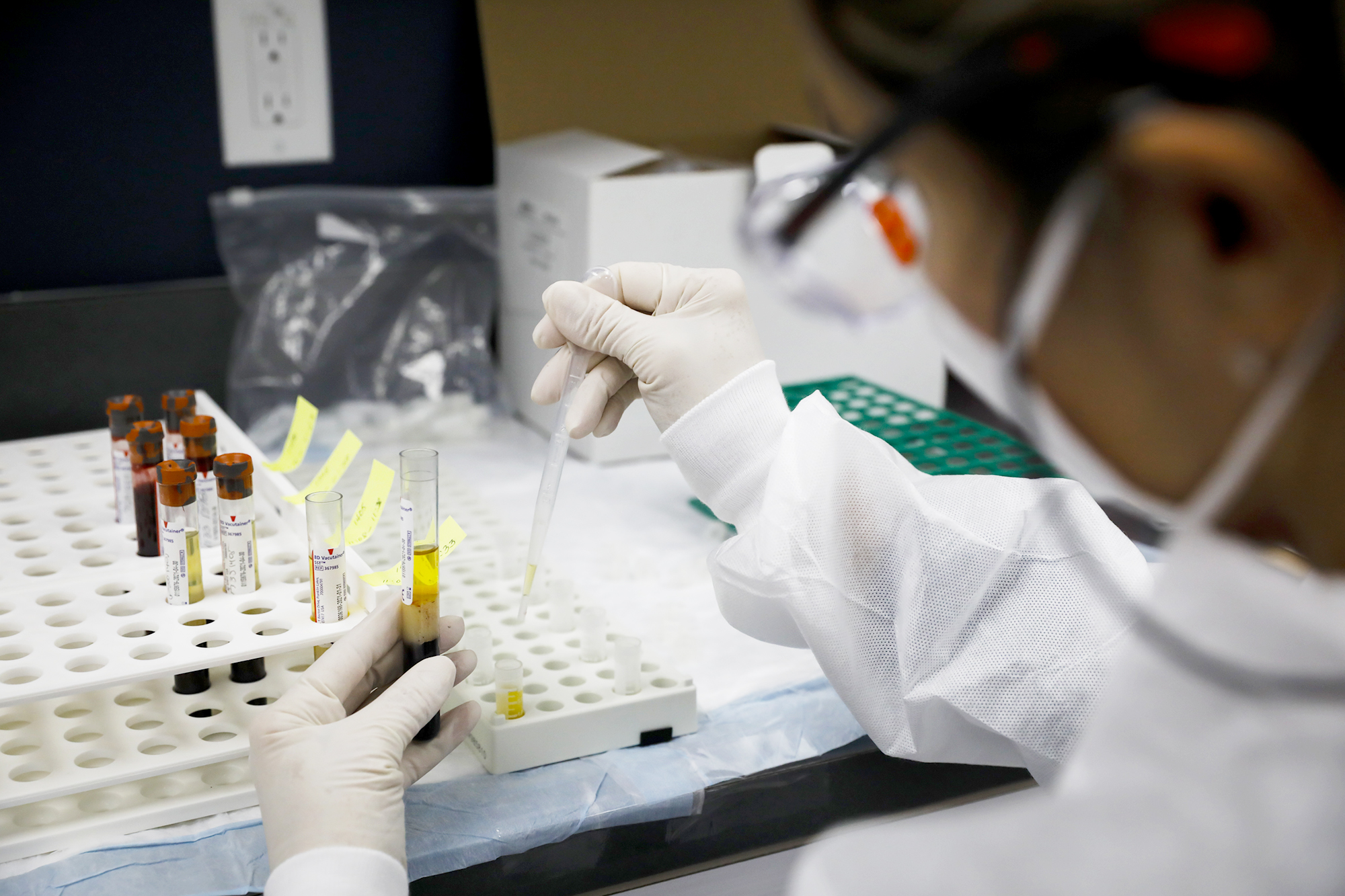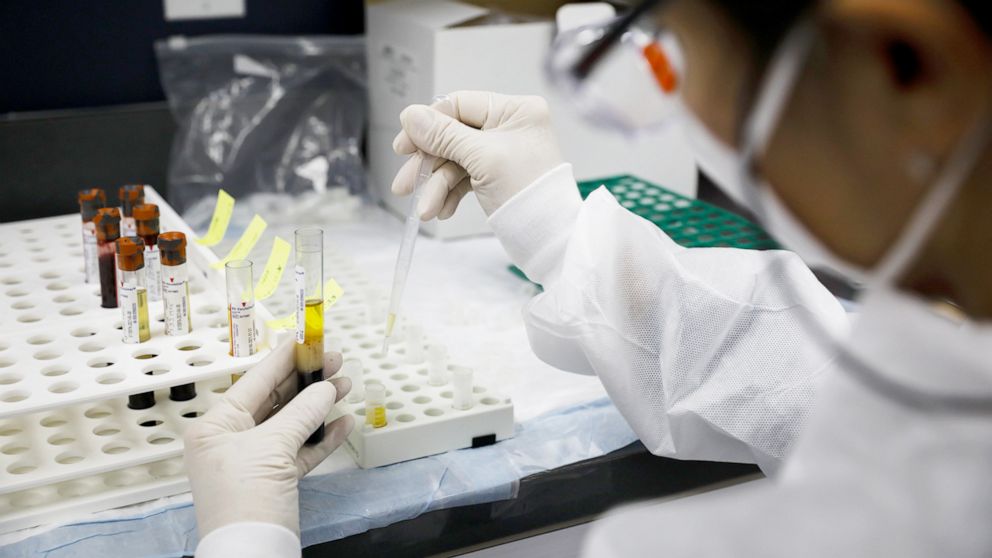A breakdown of the Pfizer vaccine and why most people will qualify for the injection
The Food and Drug Administration late Friday authorized Pfizer's COVID-19 vaccine for people ages 16 and up, but warned that those with known severe allergic reactions to any of the vaccine's components should avoid taking it.
But this begs the question -- what is in the vaccine?
The good news is that Pfizer's mRNA vaccine doesn't contain any known allergens like eggs or metals.
"There are no derivatives of food allergies, there is no aluminum or mercury or anything like that," Dr. David Stukus, director of the Food Allergy Treatment Center at Nationwide Children's Hospital, said in an interview with ABC. "There is nothing in there that is inherently allergenic."
In fact, to allergy experts, most of the ingredients don't raise any alarm bells. Pfizer's vaccine has genetic material known as mRNA, as well as fats, salts and other ingredients commonly found in everyday medications that help maintain stability.
Because we already have mRNA in nearly every cell of our bodies naturally, it's harmless, experts explained. The lipids, or fat lobules, and salts found in the vaccine add stability and structure to the mRNA and also help the mRNA slide into our cells. This way, our immune system's cells can appropriately respond and learn to attack the virus when exposed to it naturally in the real world.
There is only one ingredient in the vaccine, called PEG, that could potentially cause an allergic reaction, but experts agree it is unlikely to be a problem for the vast majority of people.
PEG "is a very common inactive ingredient found in a lot of over-the-counter things and in a lot of injectable medications," Dr. Erin L. Reigh, a staff physician in the Section of Allergy and Clinical Immunology at Dartmouth-Hitchcock Medical Center, told ABC News.
"I have seen a few cases of allergies to this in my career, but it is very rare," she added.
In fact, PEG is so commonly found around us that "you probably ate it this morning," said Stukus. "It is in many different foods and medications. It's in in MiraLAX, for when people are constipated. It's present in some other vaccines as well."

Concerns about allergic reactions were raised when two people in the United Kingdom who received the vaccine in the first day it was distributed experienced severe allergic reactions known as anaphylaxis. But both of these people had a history of severe reactions, and both carried devices like an Epi Pen.
"We lack details about these people including their own medical history of allergy and anaphylaxis or their exact symptoms," Stukus said.
"What struck me about the cases in the U.K. was that they already had carried EpiPens," Reigh said. It is most probable that these two persons already had a history of and predisposition to anaphylaxis.
Dr. Anthony Fauci Thursday said people who are prone to these types of severe allergic reactions might want to get their vaccine at a medical facility that's equipped to take care of them, in case they experience a severe reaction.
But for everyone else -- even those with a history of less severe allergies -- the vaccine should be of no concern, experts say.
"People with just run of the mill seasonal allergies in general, I don't expect them to have problems with this," Reigh said.
The Centers for Disease Control and Prevention's independent advisory committee, known as ACIP, also discussed the issue of possible vaccine allergies on Friday at a meeting with experts. During the meeting, Dr. William Gruber emphasized that Pfizer's clinical trial already included more than 5,000 people with a history of allergies to foods and substances. Gruber is senior vice president of vaccine clinical research and development at Pfizer.
The clinical trial did not include anyone with a prior history of severe allergic reactions to vaccines; nevertheless, among the more than 5,000 people with allergies who were studied in the trial, none experienced anything beyond mild allergic symptoms.
This is reassuring news, but hardly surprising as "allergic reactions to vaccines are [found at a rate of] 1.31 per million doses for all vaccines," Stukus said. He added that it is "out of abundance of caution" that the U.K. is recommending that people with a history of anaphylaxis avoid the vaccine.
Regulators will continue to examine what happened with the allergic reactions. Eventually, they might be able to identify a specific ingredient that some people are allergic to, and then develop a test to screen people who might have a bad reaction to that ingredient.
"We can screen for allergy against the particular antigens [or ingredients of the vaccine] and people with that allergy should avoid it," Dr. Akiko Iwasaki, a professor of immunobiology and molecular, cellular and developmental biology at Yale, said in an interview with ABC.
Pfizer's conditions of use, announced Friday night, instruct health care staff to administer the shots in an environment where medical treatment is readily available in case the patient has a reaction -- which is a protocol clinicians follow with all vaccines.
We are still waiting for the official FDA guidelines on who is eligible and who is recommended to get the vaccine, "but if you are healthy and have no allergies, you should not be afraid of getting the vaccine," Iwasaki said.
Shiela Beroukhim Afrahimi, M.D., is an internal medicine resident at Harbor-UCLA Medical Center in Torrance, California, and a contributor to the ABC News Medical Unit. Anita Verma, M.D., a psychiatry resident in New York City, is a contributor to the ABC News Medical Unit.
ABC News' Stephanie Ebbs contributed to this report.




